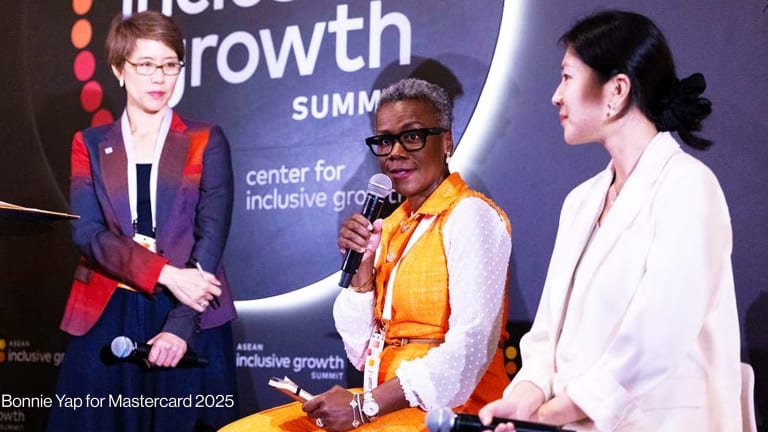Key insights from the 2020 UN World Data Forum
The theme for the 2020 World Data Forum was trust in data — but the impact of COVID-19 shaped all areas of discussions.
CANBERRA — At the 2018 World Data Forum held in Dubai, data and statistical experts said that to improve trust in data, citizens needed to be better educated in data literacy. In the face of COVID-19, the 2020 forum saw the presumed responsibility for building trust shift from data users to data providers. Supporting clear communication of data insights was highlighted as critical in responding to the crisis and building trust in data-driven decision making. While the theme for this year’s forum was trust in data, but the impact of COVID-19 shaped all areas of discussions — from the new challenges for data collection to the growing data gaps that risk leaving disadvantaged groups further behind. Here are the key insights from the forum. “Data is a public good. The public should make decisions on how it is collected and protected.” --— Aidan Eyakuze, executive director of Twaweza East Africa Building trust in data requires better communication Jeanne Holm, chief data officer with the City of Los Angeles, United States, explained the importance of better communication of data to encourage behavior change during the pandemic — as well as to gain public acceptance on measures implemented to prevent the spread of the virus. “We’re trying to help people understand why it’s important to wear masks, understand why it is important to do social distancing, and understand why it’s important … to avoid physical connections with other people,” she told the audience. “But it always comes down to the individual making that choice and feeling compelled to it.” As the “last line” of information, before it gets to the consumer, Holm said the city is providing access to data in a range of ways — including dashboards, open data, and APIs. “But more importantly on television,” she said. “The mayor gets on television almost every night with a press conference to compel people to understand what the risks are, and what needs to be changed.” Social media, call centers, and translation are all elements of its data communication strategy, which focuses on clear messaging and having the right people in the job. “We have a much broader view of who is helpful in collecting that data, and who is helpful in communicating that data, and analyzing it,” Holm said. It is a strategy that supports educating the public on trusted data, while also ensuring nothing is left open for misinterpretation. Citizens as stakeholders of data The need to ensure vulnerable groups are not overlooked in data collection continues to exist. Persons with disabilities are one such group. Presenting a new disability data advocacy toolkit, Jose Viera from World Blind Union, said that there was “an increasing demand for people to understand why we need data around people with disabilities,” and to support this group in participating meaningfully with government and statisticians on the collection and use of data that can impact them. “There is no excuse to not include people with disabilities and their representatives in these types of discussions,” Viera said. The toolkit aims to support these needs. But more broadly, a clear message from the forum was that citizens — whose data is being collected — need to be considered stakeholders of data. “Data is a public good,” said Aidan Eyakuze, executive director of Twaweza East Africa. “The public should make decisions on how it is collected and protected … [and] there needs to be greater transparency.” Ensuring that governments are open and transparent with data, build data-driven policy, and engage with the public about what data should be collected is all part of a citizen-centric data approach. When governments “misbehave” with data, Eyakuze said Twaweza, and organizations like it, aim to empower citizens through community data collections. “Having listened and having heard [citizens] … it is vital for governments to be held to account for responding to the insights citizens are sharing through this collection of citizen-generated data,” he said. A data forum for a new era Since the first World Data Forum was held in Cape Town in 2017, the hoped-for role of the forum has shifted — from simply getting the data community in a room, to seeking high-level commitments to investments in data. “The first forum was about getting a good understanding of how you bring the different data communities together,” Francesca Perucci, assistant director of the statistics division at the United Nations Department of Economic and Social Affairs, told Devex. “It was the first time we brought the official statistical community together with the private sector, and the users, and the policymakers, and the advocates for open data.” In Dubai in 2018, Perucci explained that the plan was to get commitment from governments and policymakers to prioritize data in financing and planning, with extra funding for lower-income countries. But it didn’t really come across in a way that demanded action. “This time, the fact that we, unfortunately, have COVID has been an opportunity because it shows how it makes a difference in people's lives — including being the difference between life and death ... It helps communicate the message that you need to invest in data. We cannot restart without data,” she said. In October 2021, it is hoped that an in-person World Data Forum can be held in Bern, Switzerland. But the success of the interactive forum is likely to see another transition — a hybrid event to encourage wider discussion supporting global data strategies. “We had 180 countries represented, which is pretty much [all] of the U.N. member states,” Ian Rutherford, from the UN World Data Forum secretariat, said. While “countries like the U.S. and U.K. were among the largest attendees, we had strong representation from Malaysia, Brazil, Mexico, South Africa, and part of West Africa. An online platform makes it easier to support greater participation,” he said.
CANBERRA — At the 2018 World Data Forum held in Dubai, data and statistical experts said that to improve trust in data, citizens needed to be better educated in data literacy. In the face of COVID-19, the 2020 forum saw the presumed responsibility for building trust shift from data users to data providers. Supporting clear communication of data insights was highlighted as critical in responding to the crisis and building trust in data-driven decision making.
While the theme for this year’s forum was trust in data, but the impact of COVID-19 shaped all areas of discussions — from the new challenges for data collection to the growing data gaps that risk leaving disadvantaged groups further behind.
Here are the key insights from the forum.
This story is forDevex Promembers
Unlock this story now with a 15-day free trial of Devex Pro.
With a Devex Pro subscription you'll get access to deeper analysis and exclusive insights from our reporters and analysts.
Start my free trialRequest a group subscription Printing articles to share with others is a breach of our terms and conditions and copyright policy. Please use the sharing options on the left side of the article. Devex Pro members may share up to 10 articles per month using the Pro share tool ( ).
Lisa Cornish is a former Devex Senior Reporter based in Canberra, where she focuses on the Australian aid community. Lisa has worked with News Corp Australia as a data journalist and has been published throughout Australia in the Daily Telegraph in Melbourne, Herald Sun in Melbourne, Courier-Mail in Brisbane, and online through news.com.au. Lisa additionally consults with Australian government providing data analytics, reporting and visualization services.








